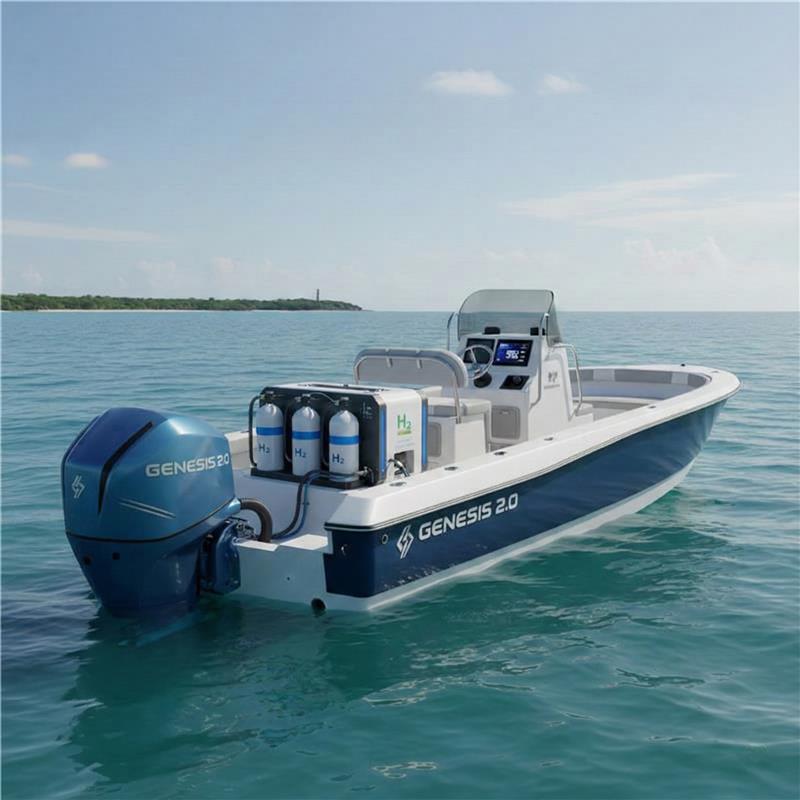Um sistema baseado em dados específicos de cada grávida, criado para prever e prevenir lesões maternas relacionadas com o parto apoiando a tomada de decisões médicas.

The present invention discloses a reactor to perform a low-temperature methane splitting process with high hydrogen productivity, and long-term stability without catalyst replacement. It also relates to a solid catalyst that is highly active for methane splitting at reaction temperatures ≤ 650 °C, does not undergo irreversible physical degradation due to carbon growth, and can be integrated in the form of a thin film on a macro support which is loaded and sealed in the reactor. The reactor comprises two compartments: a first compartment that hosts the catalytic system, wherein the methane splitting reaction occurs, and a second compartment that hosts a gas separation module.
Currently, most hydrogen produced worldwide comes from the reforming of natural gas or coal gasification. These processes are gradually becoming environmentally less appealing, due to extensive CO2 emissions. Therefore, the method of methane splitting holds significant promise for disrupting the current paradigm also due to the ongoing advancements in reactor design, catalyst development and process optimization.
This innovative reactor technology addresses the global demand for hydrogen production while eliminating CO2 emissions. Unlike existing methane splitting system on the market, this technology not only facilitates the separation but also recovery of graphitic carbon materials. These materials hold significant economic value and, crucially, their removal prevents catalyst deactivation, ensuring sustained operational efficiency.
This advanced approach positions the reactor as a superior solution in the hydrogen production industry, offering both environmental and economic benefits.
The current invention may have an important market share in hydrogen production, as it would allow economically viable hydrogen production without CO2 emissions, which is not currently provided by any classic technology. The introduction of this reactor represents a major advancement in the field, providing a cleaner, more cost-effective solution for hydrogen production that meets the growing global demand for environmentally friendly energy alternatives.
Vencedores BIP PROOF 2025/2026
Projetos vencedores

Uma opção terapêutica para tratar complicações gastrointestinais, relacionadas com a diabetes, que explora a reutilização de medicamentos já conhecidos e aprovados.

Uma argamassa inovadora, sustentável e versátil, para fabrico digital (impressão 3D) que permite criar peças ou componentes com menor impacto ambiental e maior liberdade de design.

Uma terapia fisiológica, minimamente invasiva e individualizada, que tem como objetivo revolucionar o tratamento da hérnia discal apostando na modulação imunitária por design.i3S

Um programa de intervenção psicológica digital para a melhoria da saúde mental, sexual e da qualidade de vida de sobreviventes de cancro de próstata.

Uma solução limpa, segura e eficiente para a produção de hidrogénio e eletricidade diretamente em embarcações marítimas.

Uma alternativa aos atuais métodos de desinfeção nos sistemas de água que é segura, sustentável, sem consumo de energia e sem químicos nocivos.

Um modelo inovador que reproduz de forma realista a inflamação intestinal humana, permitindo testar terapias de forma mais preditiva e personalizada.

Uma tecnologia farmacológica inovadora para combater um dos maiores desafios da oncologia moderna: o cancro da mama triplo negativo, uma forma agressiva e resistente da doença.

Um biomarcador inovador na encefalopatia associada à sépsis nenatal, com utilidade clínica e capacidade de apoiar um diagnóstico mais precoce.

Um sistema inovador que, recorrendo a uma cinta confortável com sensores, permite monitorizar movimentos fetais em casa, durante o período da gravidez.







